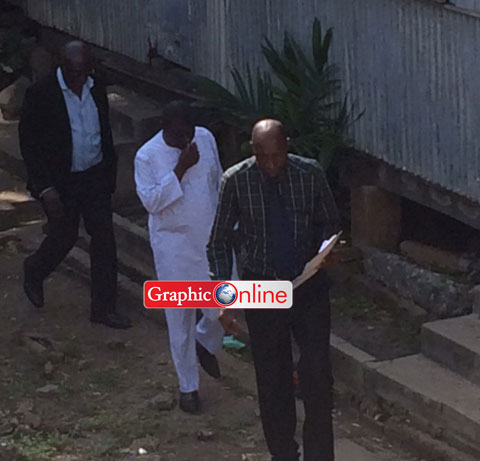The government is considering the
prospect of engaging the private sector in the distribution of power in
Ghana, a Deputy Minister of Energy in charge of Power, Mr John Jinapor,
has said.
According to him, the move formed part of the processes for accessing
the second compact of the Millennium Challenge Corporation (MCC) which
was signed by President John Mahama and the President of the United
States of America (USA), Mr Barack Obama, in August, this year.
Mr Jinapor explained that engaging the private sector in the power distribution sub-sector would promote efficiency and reduce losses in the power distribution sector.
But a former Secretary at the Ministry of Power in New Delhi, Mr R. V. Shahi, has advised the government not to rush into privatising the power distribution sector.
Mr Shahi, who presided over the privatisation of New Delhi’s power sector told the Daily Graphic in an interview that “the Ghana government must make up its mind on whether or not it wants to fully privatise. There should be a road map and the government must do it progressively."
He said the government needed to exhibit will power and commitment in deciding whether or not to engage the private sector in power distribution.
“The government has no business engaging in retailing of power. You can privatise but do it progressively. Do not be over ambitious to privatise,” Mr Shahi said.
“The government should take part in rural electrification because no business will take a commercial loan for rural electrification which is an expensive venture,” Mr Sinha said.
He said the government also needed the political commitment to succeed in privatisation of the power distribution sector.
He said the government had the interest of consumers at heart and was only focused on ensuring the consumer had value for money.
The tour would enable the participants to better understand Private Sector Participation (PSP) models and to hear directly from electricity distribution utility management and staff, government agencies, regulatory bodies, Independent Power Producers (IPPs), industries, consumer groups, and financial institutions on the lessons learned, benefits and challenges of PSP in distribution.
Mr Jinapor explained that engaging the private sector in the power distribution sub-sector would promote efficiency and reduce losses in the power distribution sector.
But a former Secretary at the Ministry of Power in New Delhi, Mr R. V. Shahi, has advised the government not to rush into privatising the power distribution sector.
Mr Shahi, who presided over the privatisation of New Delhi’s power sector told the Daily Graphic in an interview that “the Ghana government must make up its mind on whether or not it wants to fully privatise. There should be a road map and the government must do it progressively."
He said the government needed to exhibit will power and commitment in deciding whether or not to engage the private sector in power distribution.
“The government has no business engaging in retailing of power. You can privatise but do it progressively. Do not be over ambitious to privatise,” Mr Shahi said.
Rural electrification
In a separate interview with the paper, Mr Shahi said rural electrification involved huge capital investment and advised the government to consider subsidising that area, while a private investor should be tasked to cater for urban areas.“The government should take part in rural electrification because no business will take a commercial loan for rural electrification which is an expensive venture,” Mr Sinha said.
He said the government also needed the political commitment to succeed in privatisation of the power distribution sector.
Mr Jinapor
Explaining the government’s position further to the Daily Graphic, Mr Jinapor said the government was not rushing into privatising the power distribution sector.He said the government had the interest of consumers at heart and was only focused on ensuring the consumer had value for money.
Study Tour
Mr Jinapor is leading a delegation on a two-week study tour to India and Uganda to gather first hand information on the challenges and success stories of those countries with regard to private sector participation in the power sector.The tour would enable the participants to better understand Private Sector Participation (PSP) models and to hear directly from electricity distribution utility management and staff, government agencies, regulatory bodies, Independent Power Producers (IPPs), industries, consumer groups, and financial institutions on the lessons learned, benefits and challenges of PSP in distribution.



